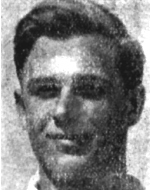Was born on November 10, 1928 in Ra’anana, and at the age of 4 he moved with his parents to Kibbutz Yagur. There he went through all the stages of education: kindergarten, elementary school, district school, until he became an older member of the kibbutz. From childhood he liked perfection, order and cleanliness, and especially loved animals. His shyness from childhood turned into a sleep of humility in his adolescence, but from his words in a circle of close friends, his silence was revealed to cover an inner world rich with experiences and aspirations. In the company of children and youth, his words were heard and received with seriousness, as they were said. When the agriculture was experiencing a great shortage of manpower due to recruitment and services during the German forces’ proximity to El Alamein in Egypt, he said that there was now no time to deal with mathematics and physics, and went to work in the flock. He began to work as a shepherd and in the meantime he also collected flowers and read books. He devoted himself to the industry with affection and as if from personal ambition – close to affection for animals – overcame the difficulties of not being among the backward and reached a great speed in milking and became one of the best shearers. It was not the aspiration to stand out that urged him to do so, but the serious attachment to work and the aspiration that would come out of his hand. This tendency was also found in another case: when he was injured in his hands during a sports exercise, he said: “Mom, I promise you, when I grow up and become a guide I will know how to keep the children.” When he was 15 years old, he became a Gadna instructor in Yagur and nearby settlements, and in his quick grasp he became proficient in the types of weapons and in the use and treatment of them, and even when he was with the sheep in the serenity of the pasture he would repeat the Kapap (face-to-face combat) . Even when he was full of work and assigned to him, he volunteered to help others work beyond his obligation, even when they did not ask him to do so. Once, when there was a shortage of people in the beehive industry, when his flock members wanted to join their general refusal to move to the beehive, he replied: “The sheep also love me, but if the welfare of the farm demands it, I will work in any industry.” When the War of Independence began, he volunteered to join the Palmach, which was delayed by the agriculture because of the vital need for his work, but after his many entreaties (“Should I sit at home while I can give my share to save the homeland?” In Palmach, the naval unit of the Palmach (because of the importance of “the connection with the Diaspora” – as he said), he was transferred to the Ground Forces, underwent various courses, received the position of commander and instructor and devoted himself to his functions, And the agriculture was not cut off. He tried to calm his mother by getting information about his brother Aryeh’s welfare and transferring them to her, and at the time of Frida he said to her: “Do not think, Mother, that only you are fighting sons, the whole house of Israel is giving its share today!” But his part in the training did not satisfy him. “I’m sick and tired of guiding and instructing, something has to be done, there they fight, and here they sit and cancel,” he said enviously to his friend who had gone to battle on the way to Jerusalem. “I have ‘fun’ to get on!” At last he was given his wish and he took part in the breakthrough to Jerusalem, the conquest of Beit Iksa, and the Passover Seder night in the attack on Nebi Samuel. Towards the end of April 1948, a “Yevusi” operation was carried out in the Jerusalem area, intended to create a territorial contiguity within the city and between Jerusalem and the northern communities. For the purpose of the operation, the Harel Brigade was transferred to Jerusalem and on April 22-23, its forces attacked Shuafat, Beit Iksa and Nabi Samuel. The force movement to Nebi Samuel took a long time and the assault began at dawn. In the face of the enemy fire, the force was forced to withdraw and in the difficult retreat in broad daylight there were many casualties. In this battle he fell, covering the retreat of his comrades on the fifteenth of Nissan 5708 (April 23, 1948). And was brought to rest in a grave in the military cemetery in Kiryat Anavim. Mashko took out a pamphlet in his memory.
